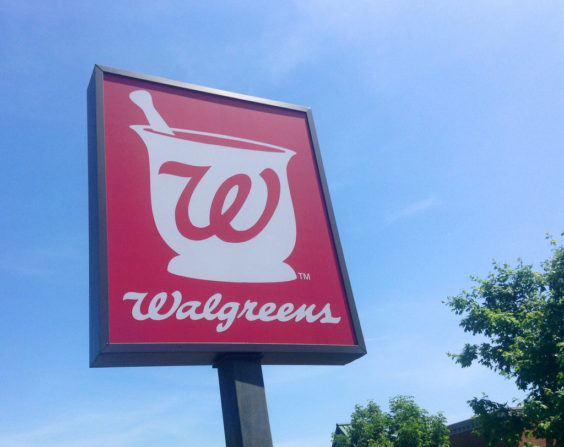
Nearly a year after accusing Walgreens of “stealing” from its customers, by overcharging them with “false, misleading and deceptive retail pricing,” Missouri’s Attorney General has announced a settlement with the drug store chain. As part of the agreement, Walgreens will submit to regular price audits, paying fines to the state and giving out gift cards to customers if its prices are found to be incorrect.
The settlement comes as a result of a lawsuit filed by Missouri Attorney General Chris Koster against Walgreens last August. In that suit, he found fault with everything from Walgreens’ pricing practices, to its shelf tags, weekly sales circulars and its Balance Rewards points program.
To settle the matter, Walgreens has agreed to change its shelf tags in the state of Missouri, make its Balance Rewards program more clear, and pay the price if its methods don’t improve.
The news comes as many couponers are already upset with Walgreens, after it unveiled recent changes to its coupon policy. So the settlement – and the free items and gift cards it offers – may salve the wounds of those who have problems with Walgreens’ policies. But the agreement affects only Walgreens’ Missouri locations. That could make shoppers in other states suspicious – if there are so many pricing problems happening in Missouri, are they not happening in other states? And what, if anything, are other states doing about it?
As part of the settlement, for the next three years, all 208 Walgreens locations in Missouri will be visited by an independent auditor. Any store that has less than a 98% price accuracy rate, will be fined $1,500. The fine doubles for a second offense, and tops out at $5,000 for a third failing score.
And if a customer is overcharged for an item, and brings it to Walgreens’ attention within 48 hours, Walgreens will give them the item for free if it’s valued at $5 or less. If it’s worth more than $5, the customer will receive a $10 gift card, plus a refund of the price difference. If several of the same items are purchased, the freebies or gift cards will only be given for the first one, and the remaining items will be charged at the lower price.
Walgreens will also be banned from suggesting in its ads or in-store signage, that Balance Rewards points or Register Rewards can be “immediately applied to a purchase”. And it must “clearly and conspicuously” disclose if loyalty club membership is required to obtain an advertised price.
The drug store chain must also remove sale ads and shelf tags within 12 hours after the offer expires, and cannot display such ads any earlier than 12 hours before the offer is available.
Finally, Walgreens must change its “price tag color coding to differentiate sales and other promotional offers from regularly priced items.” It will also have to implement a “multi-color tag and coding system to distinguish between weekly and monthly advertisements.” Again, the agreement covers only those stores in the state of Missouri, but Walgreens has not said whether it might change its signage nationwide, for consistency and efficiency’s sake.
“My Attorney General’s Office intends to loudly, clearly, and publically let Missourians know each time a Walgreens store fails to meet the expectations of this agreement.” Koster said in announcing the settlement on Wednesday. “My hope is that the combination of audits, financial penalties, and public shaming will give Walgreens executives a strong incentive to clean up their act.”
The whole matter came about last year, after customer complaints led to undercover audits by the Attorney General’s office. Those audits, at eight Walgreens locations, found “over 100 advertisements which displayed sale prices after the sale had expired,” overcharges that “ranged from a few cents to over $15.00” and a pricing error rate of “over 17%” in one instance.
Koster’s lawsuit alleged that Walgreens has “consistently and systematically displayed inaccurate sales tags, overcharged customers, failed to remove expired sales tags, failed to consistently ensure the price charged is the same as the price advertised, and used misleading or confusing in store-signs.”
The suit also singled out the Balance Rewards program, and points-eligible purchases whose price tags “contain fine print that the purchase of an item at the sale price displayed requires a coupon from Walgreens’ print advertisements in addition to membership in the rewards or incentive program,” or which claim that “the purchase of an item is ‘like getting’ the product for the reduced price displayed, when in fact that is not accurate.”
“This level of consumer deception is inexcusable from a corporation as sophisticated as Walgreens,” Koster said at the time. “In fact, it’s appalling.” He went on to question whether it was all intentional. “My concern is this is not sloppiness,” he said. “This is a business practice that is consciously intending to steal from sick people.”
Walgreens spokesman James Graham said the company was “prepared to have a constructive dialogue about the issues (Koster) raised and address any appropriate concerns,” but added that “we were disappointed and disagree with the attorney general’s comments.”
Fast forward to this Wednesday – and while Walgreens did agree to everything in the settlement, another company spokesman did not exactly admit wrongdoing. Walgreens was “pleased to have reached an agreement with the attorney general that allows us to continue to operate within our previously established business practices,” company spokesman Phil Caruso said in a statement. “These practices are consistent with our 113-year history of acting in our customers’ best interests and ensuring their trust.”
Missouri is actually the third state to settle with Walgreens over similar claims. Last year, the company paid $1.4 million to settle a lawsuit filed by four California counties, and agreed to offer a similar gift-card price-guarantee program. It also paid nearly $30,000 to settle a similar case in Wisconsin.
“I expect (Missouri) will not be the last state to take on Walgreens,” Koster said. So if your state hasn’t taken a hard look at Walgreens’ prices yet – just wait.
















I think it is great that tax payer money is being spent to fix problems the tax payers are experiencing. Not only that, but it’s being addressed directly by those in office. I think that Missouri Attorney General Chris Koster should run for president!!
Amanda, government does not do anything efficiently, nor was it intended or designed to police every aspect of our lives. Just look around you. When governments get involved, they almost always create more problems. The way to deal with Walgreens is to stop shopping there if you feel they are being dishonest, and tell everyone you know. With social media, you can even spread the word to people you don”t know. If enough people stop shopping there, they will make changes on their own to get the customers back. Even if they don’t make the effort to get you to come back, you have dozens of other stores where you can shop. Problem solved without spending taxpayer money, and then you have more money in your pocket with which to shop!
In the words of Emily Litella of Saturday Night Live, “Never mind!”
It turns out the taxpayers aren’t going to be on the hook for Walgreens’ audits. Walgreens has to hire its own private auditors pending government approval of said auditors so instead of an increase in your taxes, you will see an increase in Walgreens prices.
It seems to me that the taxpayers’ money could be better spent than policing Walgreens pricing.